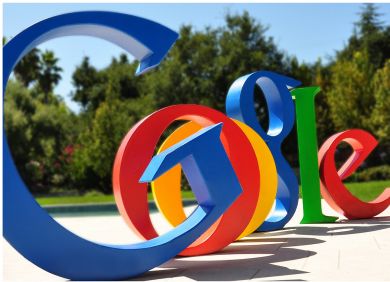Google Hits Back After News Corp Rant

Google hits back at News Corp after its boss lambasted Google and labelled it a ‘platform for piracy’
Google has hit back at Rupert Murdock’s News Corporation after its chief executive Robert Thomson launched a fiery attack on the search engine last week.
Google took the opportunity to respond to the open letter addressed to European Competition Commissioner Joaquin Almunia, in its own blog posting that was cheekily entitled “Dear Rupert”.
Piracy Allegation
The Google blog posting, by Google’s Rachel Whetstone, SVP Global Communications, responded on a point by point basis to some of the harsher comments made by Thomson in his strongly-worded letter.
The search engine pointed out that in the past access to information, particularly news content, used to be controlled by a relatively small number of media organisations. Google said that nowadays people have far greater choice, but it admitted that this has had a profound impact on newspapers, which face much stiffer competition for people’s attention and for advertising revenues.
 But Google also made a robust defence, especially concerning Robert Thomson’s allegation that Google is a “platform for piracy and the spread of malicious networks” and “a company that boasts about its ability to track traffic [but] chooses to ignore the unlawful and unsavoury content that surfaces after the simplest of searches.”
But Google also made a robust defence, especially concerning Robert Thomson’s allegation that Google is a “platform for piracy and the spread of malicious networks” and “a company that boasts about its ability to track traffic [but] chooses to ignore the unlawful and unsavoury content that surfaces after the simplest of searches.”
“Google has done more than almost any other company to help tackle online piracy,” wrote Whetstone. She pointed out that in 2013 it removed 222 million web pages from Google Search due to copyright infringement. The average take-down time is now just six hours. And it downgrades websites that regularly violate copyright in its search rankings.
Whetstone also pointed out that Google is also an industry leader in combating child sexual abuse imagery online, and has safe modes for both Search and YouTube that filter out inappropriate content. She also said that Google is committed to protecting its users’ security, which is why it removes malware from its search results and other products.
Whetstone also utterly rejected the allegation from News Corp that “Google is willing to exploit [its] dominant market position to stifle competition.” She said that Google is not the gatekeeper to the web, “as some claim”.
She pointed out that there is a large amount of direct traffic to websites such as wsj.com or thesun.co.uk. And people are increasingly using their smartphones with installed apps to navigate directly to content.
And Google’s Whetstone also confronted directly the charge from News Corp that Google regularly alters its search engine results and rankings “which inevitably maximise income for Google and yet punish small companies that have become dependent on Google for their livelihood.”
“Of course we regularly change our algorithms – we make over 500 changes a year,” wrote Whetstone. “But these changes are all about improving the user experience, not punishing small companies. Indeed, it’s well documented that the highest-profile change to our search ranking, called “Panda”, actually reduced our advertising revenue.”
Android Complaint
She pointed out that Yelp, another complainant to the EC, said on a recent earnings call that it had seen actually an uptick as a result of the recent Google algorithmic change. “They’re constantly making changes and alterations … and most of that really, on a day-to-day basis, doesn’t have a material effect”,” said Yelp recently.
Robert Thomson of News Corp also alleged that Google manages Android to serve its own best interests, especially with its certification program. “Android is an open-source operating system that can be used free-of-charge by anyone. You don’t need Google’s permission,” wrote Whetstone. “If hardware manufacturers want to offer applications via Google Play, our digital apps store, we simply ask that they meet a minimum technical standard to ensure these apps run smoothly and securely across a range of Android-powered devices.”
“Undermining the basic business model of professional content creators will lead to a less informed, more vexatious level of dialogue in our society … the intemperate trends we are already seeing in much of Europe will proliferate,” Thomson wrote.
“People probably have enough evidence to judge that one for themselves :)” responded Google’s Whetstone.
Are you a Google expert? Take our quiz!